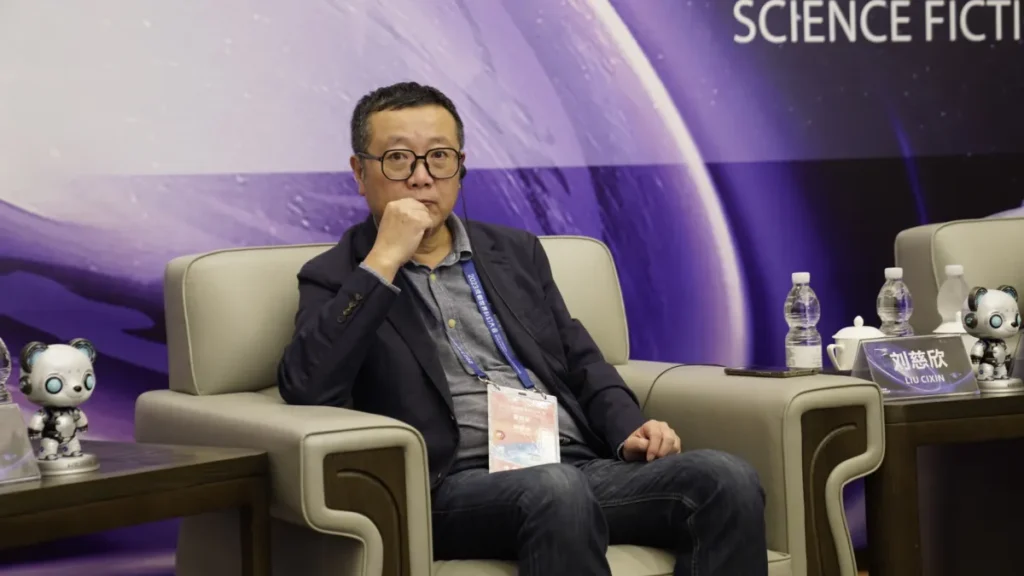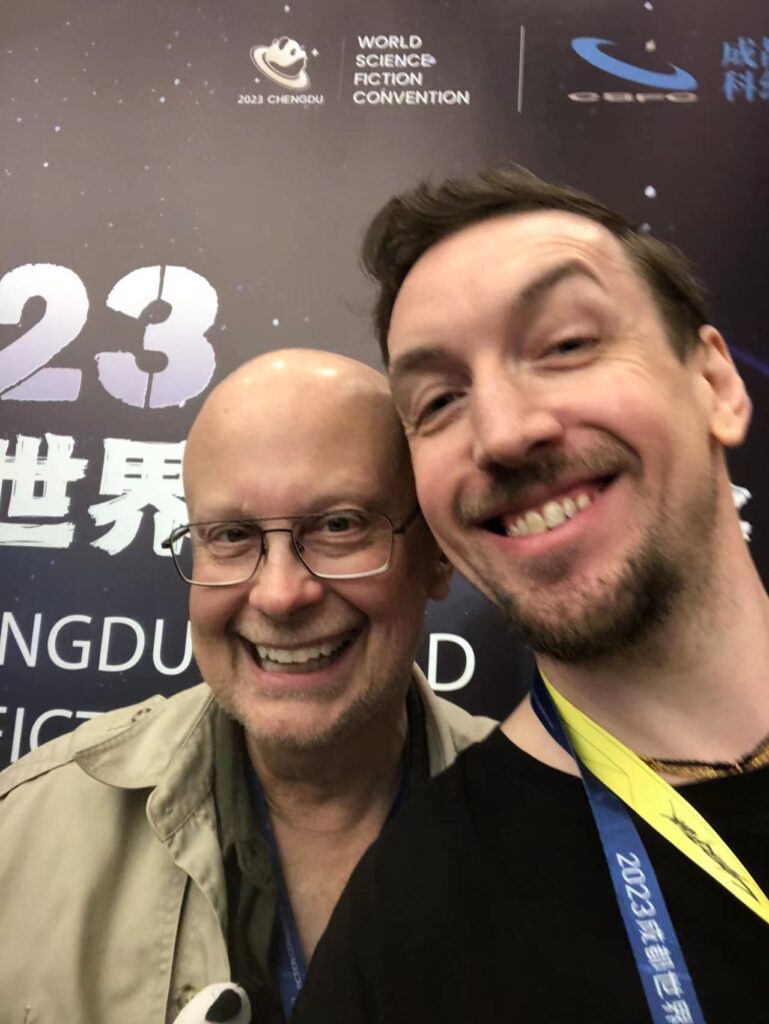Netflix’s adaptation of “The Three-Body Problem” has taken the world by storm, a testament to the enduring allure of Liu Cixin’s storytelling prowess, now unfurling its narrative complexity to a global audience. With the creative minds behind “Game of Thrones” at the helm, this adaptation has transformed a dense tapestry of hard sci-fi into a visual spectacle, intertwining human drama with the vastness of cosmic mysteries.
Opening with a harrowing scene set during the Cultural Revolution, the series immediately establishes its commitment to raw emotional storytelling, intertwined with the grandeur of scientific exploration. This juxtaposition of personal tragedy and the pursuit of knowledge sets the stage for a show that’s as intellectually stimulating as it is emotionally resonant. As millions of eyeballs sit glued to black mirrors absorbing this newest must-watch Weiss & Benioff adaptation, what does it mean for China’s premiere Sci-Fi author to get the ‘Game of Thrones’ treatment that turned George R.R. Martin into a household name? I think it means a lot for the world of translated and adapted global literature and the emerging Western interest in it.
At the 2023 Worldcon in Chengdu, I had the opportunity to converse with Liu Cixin, whose insights shed light on this transformative adaptation. While he expressed a modest detachment from the project, his curiosity about its impact and reception was palpable. He views the series as a potential bridge, extending his reach from a celebrated Chinese author to a global literary figure, echoing the global embrace experienced by authors like George R.R. Martin.
WLiu’shile is sitting in the future Chengdu Science Fiction Museum venue, which he calls “a spaceship from another world.” Liu’s reflections underscore the universality and otherworldly appeal of science fiction. According to Liu, this genre is a vessel for exploring our collective destiny, emphasizing that “Our Earth is just a tiny speck in the vast universe,” a sentiment that resonates deeply in the context of “The Three-Body Problem.”

Liu Cixin at the 2023 Worldcon World Sci-Fi Fair in Chengdu, China
The show’s success also signifies a broader trend toward embracing translated works, highlighting the industry’s growing appreciation for stories that transcend cultural and linguistic barriers. By presenting Liu’s uniquely Chinese narrative to a worldwide audience, Netflix is championing the diversity of global storytelling, offering viewers a glimpse into the rich tapestry of Chinese history and culture while exploring universally human themes.
What can you expect if you’re getting into Netflix’s 200m adaptation of 3 Body Problem? I think the benefit of their adaptation is accessibility. Liu’s strength lies in his big ideas, but his characterization often relies on archetypes and is not exceptionally character-driven or dynamic at the scene level. Also, there were times when I felt a little ‘dense’ – as a fantasy author full of ‘big ideas’ I had to sift through a lot of physics, numbers, and ‘hard science’ concepts that were not out of place in the mind of an engineer, but in fact, would have been his strength, as linguistics was for Tolkien, and what he leaned into to find his sea legs. In the adaptation, Weiss & Benioff make his sprawling Sci-Fi opus quite accessible to a broader audience, blending the strength of his vast ideas with character-driven drama from a talented ensemble cast – with a few notable Game of Thrones alumni – and without spoilers, I might add – a Shakespearian talent of killing off your favorite ones that will not be out of place for a Game of Thrones novel/series either.
So, what do I expect from this? Despite a few mixed reviews, critics and fans seem to be loving it so far, justifying the nearly 200m budget for season one and almost assuredly getting a renewal for future seasons to complete the trilogy. What else will this accomplish? My friend, the Hugo-and-Nebula-winning sci-fi luminary Robert J. Sawyer expressed this quite eloquently when he predicted that Liu Cixin will almost single-handedly open the doors to worldwide authors by generating a broader interest in translated and adapted literature for American and Western audiences, something Netflix has been doing quite well, too, with their wide array of programming and subtitle and dubbing options—a match made in heaven. Predictions and forecasting are key tools of the trade for sci-fi authors, after all.

Robert J. Sawyer and Jorah Kai at the 2023 Worldcon World Sci-Fi Fair in Chengdu, China
In this era of global storytelling, “The Three-Body Problem” stands as a beacon, illustrating the power of narrative to unite disparate cultures and ideas. It’s a celebration of the potential within translated literature to broaden our horizons and deepen our understanding of each other, marking a significant moment in the evolution of storytelling. Through Liu Cixin’s lens, we’re invited to traverse the cosmos and the complexity of human emotion, exploring the endless possibilities that lie in the confluence of science, fiction, and the universal human experience.
Liu’s advice to aspiring writers to balance their creative passion with practical life considerations resonates as a guiding principle. It reflects a dedication to one’s art without succumbing to the pressures that often accompany creative pursuits. This balance is crucial in a world increasingly receptive to diverse voices and narratives, where the stories we share are as boundless as the universe itself. He said, “If you try to make writing your only career and source of income, you might quickly feel the weight and pressure and give up. Instead, please find time to make it a beloved hobby and develop it slowly. When it finds a life of its own, consider doing it full time.” As a journalist, teacher, and aspiring full-time novelist, this encouraged me that perhaps I’m not doing so badly, and, like Stephen King, Patrick Rothfuss, and Lucy M. Montgomery, there is a long history of teachers becoming writers to draw from.
These past ten days have been difficult for me. Ben Ben, our dog of 17 years, had a stroke and couldn’t stand unsupported. His recovery so far has been a big challenge for us both, but with meds and love and care, he is cheerful and making great progress. The prognosis at his age isn’t great, but there’s a chance he’ll walk again unsupported, and either way, every day, we get some fresh air, good treats, and loving embraces in our days, and although we all will one day hurl ourselves into the endless expanse of a black hole; it’s the little things that matter, isn’t it? <3



